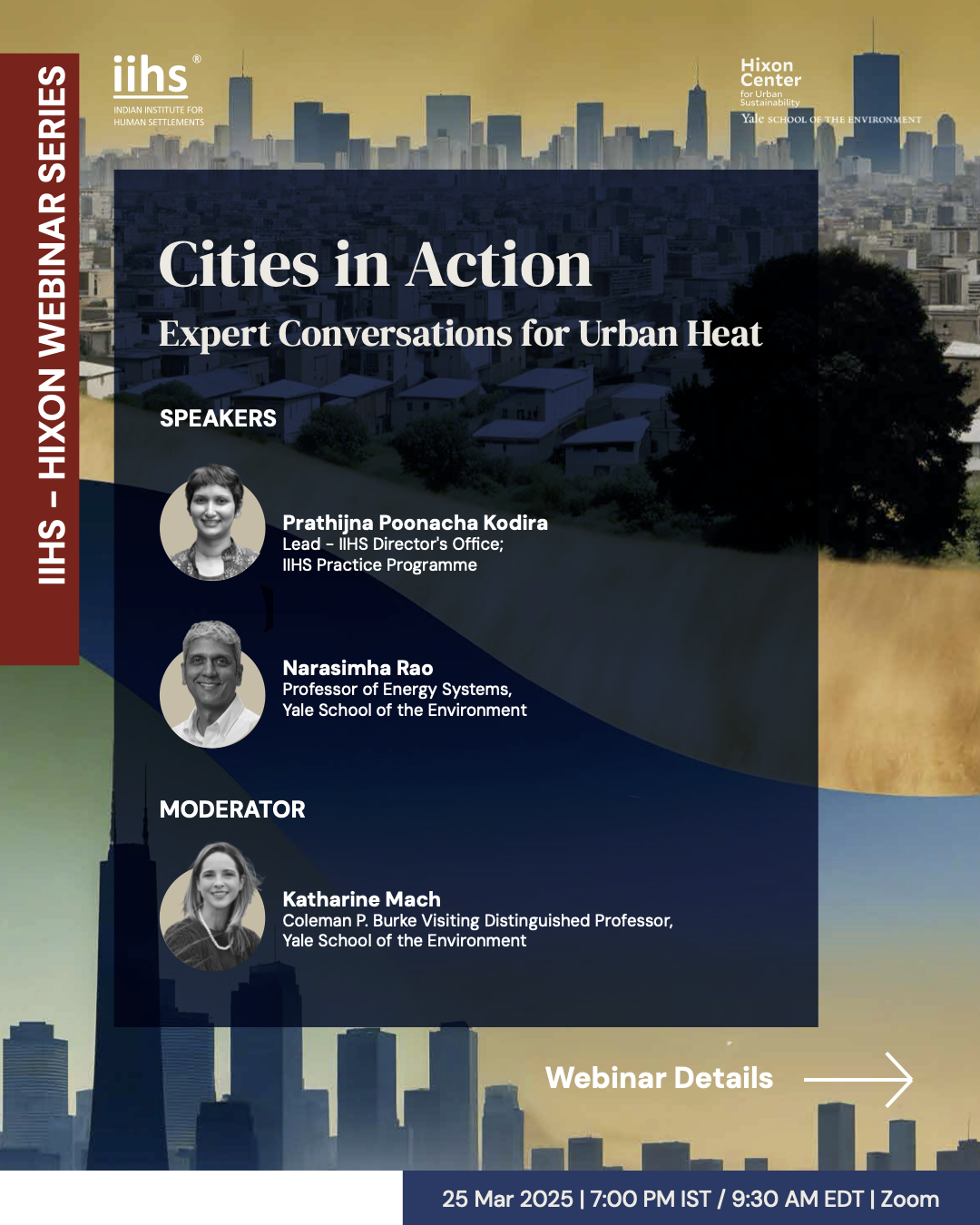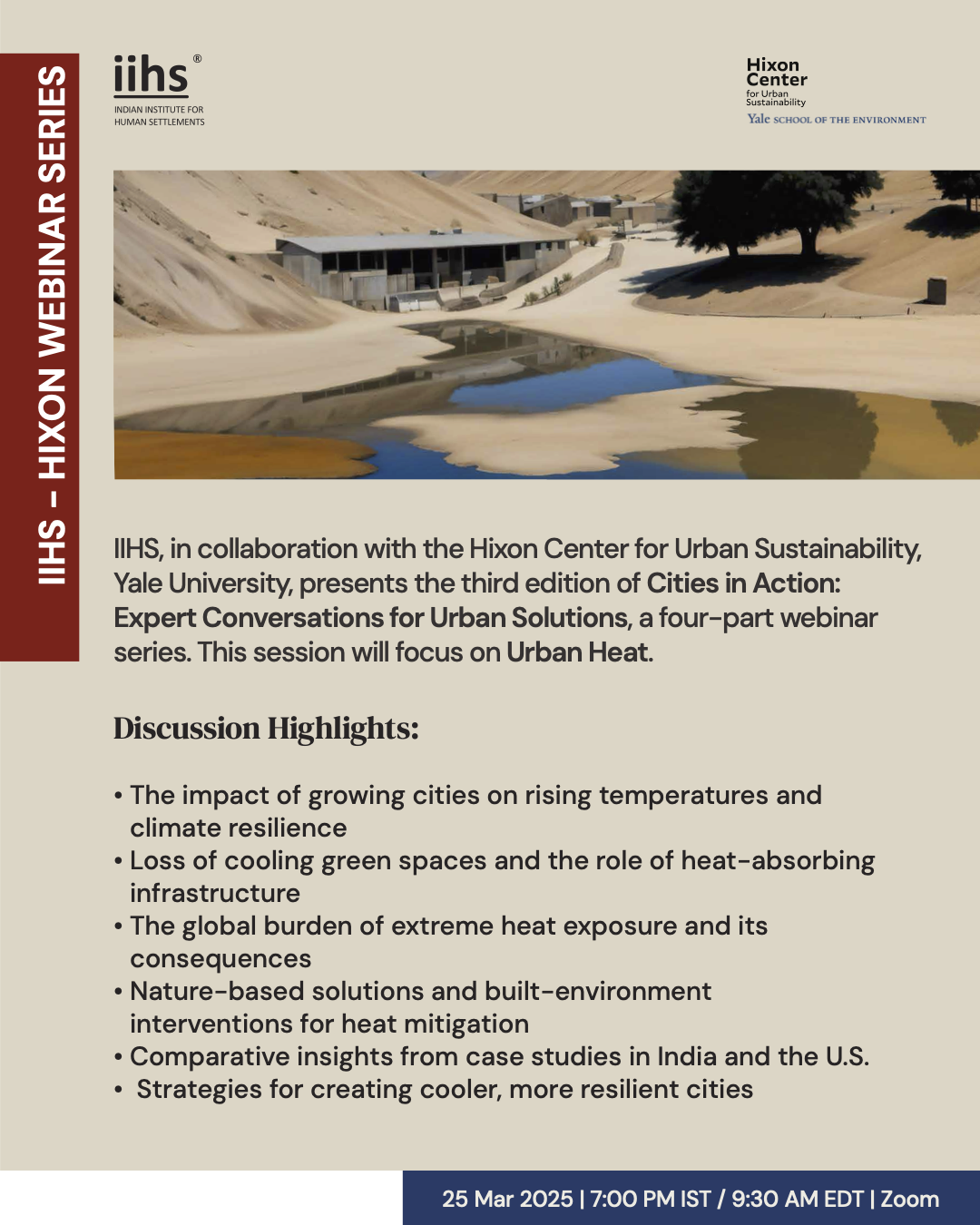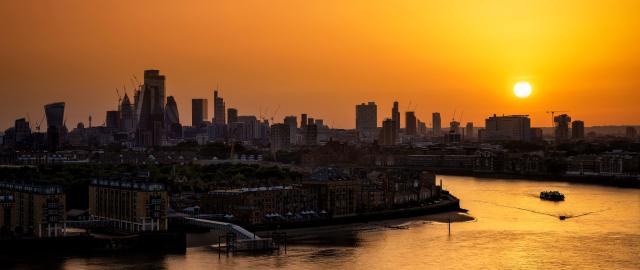Cities in Action: Expert Conversations for Urban Heat Solutions
Speaker Information
Katharine Mach is professor and chair of the Department of Environmental Science and Policy at the University of Miami Rosenstiel School of Marine, Atmospheric, & Earth Science. During Spring 2025, she is the Coleman P. Burke Distinguished Visiting Professor at the Yale School of Environment. Her research assesses climate change risks and response options to address increased flooding, extreme heat, wildfire, and other hazards. Through innovative approaches to integrating evidence, she informs effective and equitable adaptations to the risks. Mach has served as a chapter lead and author in the Fourth through Sixth US National Climate Assessments and as a science director and lead author for the IPCC Fifth and Sixth Assessment Reports. Mach was the 2020 recipient of the Piers Sellers Prize for world leading contribution to solution-focused climate research. She received her PhD from Stanford University and AB summa cum laude from Harvard College.

Speaker Information
Prathijna Poonacha Kodira is a researcher and practitioner who works on climate change adaptation, focusing broadly on how social and environmental systems respond to impacts of climate change, especially in urban and peri-urban geographies. Specifically, her work looks at livelihood transitions, nature-based solutions as adaptation, and the intersection of climate change and the built environment. Prathijna is experienced in enabling and engaging in multi-stakeholder processes for dialogue and decision-making using approaches such as Transformative Scenario Planning and Appreciative Inquiry. In the process, she is interested in unpacking the complexity of participatory decision-making, especially in the urban context.
At IIHS, Prathijna has worked on several large multi-country, multi-partner projects, including the IDRC/FCDO-funded Adaptation at Scale in Semi-arid Regions (ASSAR) (2014–18), the British Academy-funded Urban and Peri-urban Agriculture as Green Infrastructure (2019–22), GIZ and Resilience First-funded Summary for Urban Policymakers (2022), and the AfD-funded Greening Urban Food Systems (2023–24). Additionally, Prathijna has also been part of the Director’s Office at IIHS since 2020, working closely with the Director, and contributing to strategic institution building processes and activities.
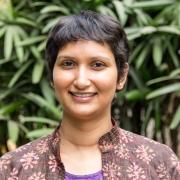
Speaker Information
Dr. Narasimha D. Rao's research examines the relationship between energy systems, human development and climate change. His current focus is on investigating the household-level impacts of energy transitions policies in the US and around the world. His project entitled Decent Living Energy quantifies the material requirements and energy needs for the eradicating multidimensional poverty around the world. His research interests also include investigating income inequality, compound vulnerabilities to climate change, and climate policy analysis. His methods include household energy modeling, econometrics, input-output, and policy analysis. His work has been supported by the European Research Council, National Science Foundation, Environmental Protection Agency and other organizations.
Dr. Rao is also a Senior Research Scholar at the International Institute for Applied Systems Analysis. He received his PhD from Stanford University in Environment and Resources, Masters from Massachusetts Institute of Technology in Electrical Engineering and Technology Policy, and A.B from Dartmouth College.
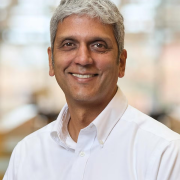
The Indian Institute for Human Settlements (IIHS), in collaboration with the Hixon Center for Urban Sustainability at the Yale School of the Environment, is delighted to announce the third webinar of the Cities in Action: Expert Conversations for Urban Solutions series—bringing together experts to identify strategies for addressing urban heat. In this edition we bring speakers: Prathijna Poonacha Kodira, Lead, IIHS Director's Office and Practice; and Narasimha Rao, Professor of Energy Systems, Yale School of Environment.The conversation will be moderated by Katharine Mach, Professor and Chair, Department of Environmental Science and Policy, University of Miami Rosenstiel School of Marine, Atmospheric, & Earth Science.
As cities continue to grow, the combined loss of cooling green spaces and expansion of heat-absorbing infrastructure are intensifying the impacts of climate change. An estimated 1.7 people globally are exposed to extreme heat, resulting in more deaths than any other weather-related hazard. While the challenges are immense, the opportunities for effective solutions are also significant.
This session will focus on innovative strategies to mitigate and adapt to urban heat, including nature-based solutions and interventions in the built environment. Experts will share insights from applied research in cities across India and the United States, highlighting potential pathways for creating cooler, more resilient urban spaces.
